sandhya · 14 · she/herdoes john laurens know i love him history + turn · i follow back from my main amrev with some frenchrev and misc history
Don't wanna be here? Send us removal request.
Photo




Robert ‘shit i’m gay’ Townsend
1K notes
·
View notes
Text
cute date idea: travel around near the combahee river at the dead of night so you can find john laurens’s ghost and fight him
438 notes
·
View notes
Photo

1944 - Snowball the cat tries to take over a machine gun in Normandy so she can shoot some Nazis herself.
211K notes
·
View notes
Quote
[Aaron] Burr’s journal is remarkable for its openness … he shares even his most outrageous dreams. Awakening one morning, he scratched out: ‘Dreamed [I was] engaged to marry a huge ugly beast.’ … [he] 'deliberated whether to blow out [my] brains or perform [the] engagement.’
Fallen Founder: The Life of Aaron Burr, Nancy Isenburg (via sonofhistory)
99 notes
·
View notes
Text
I would like to wish the most wonderful of birthdays to Benjamin Tallmadge. I hope him and Nathan are together and happy, wherever they are.
45 notes
·
View notes
Photo
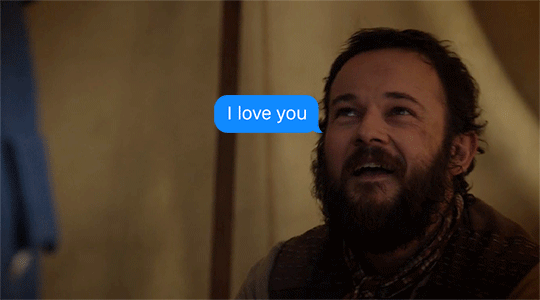
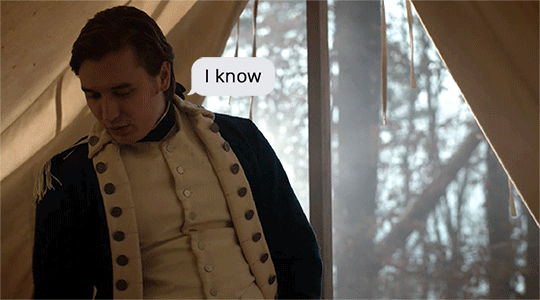
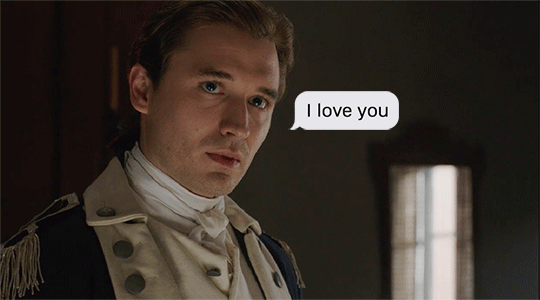
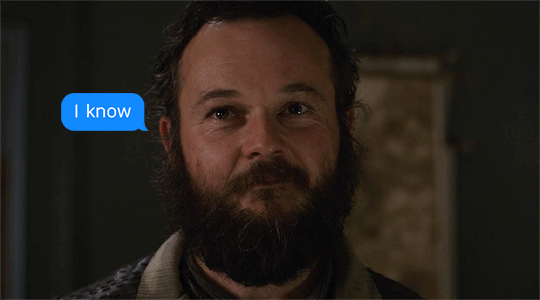
1x04 // 4x08
346 notes
·
View notes
Text
“Still, it was difficult for any friend to remain annoyed with John for long.”
— Gregory D. Massey, John Laurens and the American Revolution
61 notes
·
View notes
Text
chill things to do with your #bro
• write super long letters to him. constantly. • refer to yourself as a jealous lover when he doesn’t respond right away. • invite him over!! to everything!! including a threesome with you and your wife!! • on your wedding night!! • tell him how warm your friendships are • (as opposed to your cold professions) • chide him on stealing your affections • try not to have too many inappropriate statements that will later have to be censored • tell him to talk you up to other ladies, and make sure to specifically focus on certain body parts no homo ;) • curiously query as to why they want you to be married, anyways?? • yo, bro, it won’t help me get over you tf • make sure to point out that everything in the world disgusts you but your bro • “my dear” • “yrs. for ever”
6K notes
·
View notes
Photo

the only decent one out of Many attempts to draw the Tallboy
712 notes
·
View notes
Text
And what would Nathan
Hale have done if he’d had more
than one life to lose?
—Red Leaf Haiku by © John Clark Helzer
97 notes
·
View notes
Quote
[France’s] finances are in better state than our enemies’, and our resources fifty times as great; our navy is on a good footing; our armies if well led are invincible, and besides we are French, which is no small weight in the scales to our advantage.
the Marquis de Lafayette, May 14, 1778, Lafayette Joins the American Army
Lafayette gets technical

(via faustyflakes)
825 notes
·
View notes
Quote
[Asher Wright is] now in his eighty-second year of his life, and beside the infirmities of advanced age, has been affected in his mind, ever since the melancholy death of his young master, Captain Nathan Hale. What is gathered of him, can be learnt only at intervals when he is in the humor of conversation.
R.N. Wright, relative of Asher Wright.
I wrote up facts on Asher Wright here, if anyone is interested. Basically, Asher was Nathan’s childhood best friend until Hale went to Yale (that rhymed) and they reunited in 1776. Asher came with Nathan and was his personal servant until his death. The morning of Nathan’s disappearance, Wright was the one who dressed him and shaved him without Hale ever telling him where he was going.
This quote is dated to a 1836 night in which Asher was “particularly loquacious” according to Alexander Rose. In this evening, Asher spoke very excitedly, lucidly about his companion that his relative, R.N. Wright, scarcely had time to wright it down fast enough.
“When he left us, he told me he had got to be absent a while, and wanted I should take take care of his things and if the army moved before he returned, have them [moved] too … He was too good-looking to go so. He could not device. Some scrubby fellows ought to have gone. He had marks [powder burn scar] on his forehead, so that anybody would know him who had ever seen him00having had [gun]powder flashed in his face. He had a large hair mole on his neck just where the knot [noose] come. In his boyhood, his playmates sometimes twitted him about it, telling him he would be hanged.”
They met again after Hale went to Yale during the January of 1776. Hale’s first servant had fallen ill and though he eventually record (Hale prayed for him vehemently according to Asher),
“Capt[ain] Hale was [of] a mind I should take his place … and I did and remained with him till he went on to Long Island.”
Before retiring, Asher added another piece of information:
“James Sprague, my aunt’s cousin … was desired by Col[onel] Knowlton, to go not to Long Island. he refused, saying, ‘I am willing to go and fight them , but as for going among them and being taken and hung up like a dog, I will not do it.”
Quietly, Asher finally said in closure:
“Hale stood by and said, I will undertake the business.”
(via sonofhistory)
119 notes
·
View notes
Photo






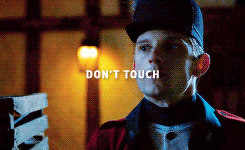

I’ll fight for you, too.
291 notes
·
View notes
Photo

from this article on homosexuality in the first world war
8K notes
·
View notes
Conversation
18th century soldiers be like
general: Get on the battlefield, soldier! NOW!
soldier: sir yes sir
soldier: (thinking) bitch u want me to ruin this fabulous uniform wtf
863 notes
·
View notes
Text
Hamilton and the New York Manumission Society...
In April 1785, Hamilton represented a man named Frederick, who petitioned the Manumission Society, claiming that he was being unfairly detained as a runaway slave in a New York jail, despite the fact that he had fought in the Revolution alongside John Laurens in South Carolina and had consequently been freed. Undoubtedly drawn to the case by his close relationship to John Laurens, Hamilton immediately sent a letter to Henry Laurens. “A tissue of lies,” Laurens replied to Hamilton, explaining that during the battle Frederick claimed to have fought in, he had run off and joined the British for a short time, returned to Laurens’ plantation, and then escaped north once more.[1] Laurens went to great lengths, however, to convince Hamilton that he was not a supporter of slavery. “Our dear friend [John Laurens] and his father [referring to himself] entertained but one opinion respecting Slavery,” Henry Laurens insisted, “excepting that his generous Soul would have precipitated a Work, which to make it glorious his father thought he saw could only be accomplished by gradual steps.”[2] Laurens claimed he was such a generous and kind master, “some of my Negroes to whom I have offered freedom have declined the Bounty, they will live with me, to some of them I already allow wages, to all of them every proper indulgence….”[3] Throughout the letter, Laurens remained insistent that he was not a proponent of slavery.
That Laurens was being disingenuous is evidenced both in his letter to Hamilton and in other correspondence about Frederick. Laurens told Hamilton that Frederick “was always a good Lad before the War, contaminated no doubt by bad examples in that dreadful scene.” [4] Seemingly without consideration of the irony, Laurens also asserted that “could Frederick read all this he would perceive his Master is not very anxious to remand him to good quarters…the time is when I only wish to collect my Family.”[5] This benign, paternalistic sentiment is belied by the fact that Laurens clearly had no interest in teaching his “family members” how to read. Laurens ended his letter by telling Hamilton that if it were not feasible for Frederick to be returned to him, “I wish to give him a chance at being rescued from slavery.”[6] Yet, in July 1785, Laurens reached out to his attorney, Jacob Read, with instructions that make it clear that freeing Frederick was never an option. “I hereby vest you with full power to act therein on my behalf, by selling the said Negro for the best price to be obtained,” Laurens told Read, “or if practicable to Ship him for Charleston will be best.”[7] Laurens then informed Read that, “as Mr. [John] Jay is president of the above mentioned Society, I shall…expect his friendly aid, should you think it necessary to apply for it.”[8] That Laurens felt obligated to lie to Hamilton about his intentions is significant. Hamilton was apparently known by his contemporaries as a more outspoken critic of slavery than is generally believed.
[1] Henry Laurens to Hamilton, 19 April 1785: PAH, III, 605-608.
[2] Ibid.
[3] Ibid.
[4] Ibid.
[5] Ibid.
[6] Ibid.
[7] Henry Laurens to Jacob Read, 16 July 1785: The Papers of Henry Laurens, Philip M Hamer, et al, eds., XVI (Columbia: University of South Carolina Press, 1968), 579-80.
[8] Ibid.
60 notes
·
View notes
